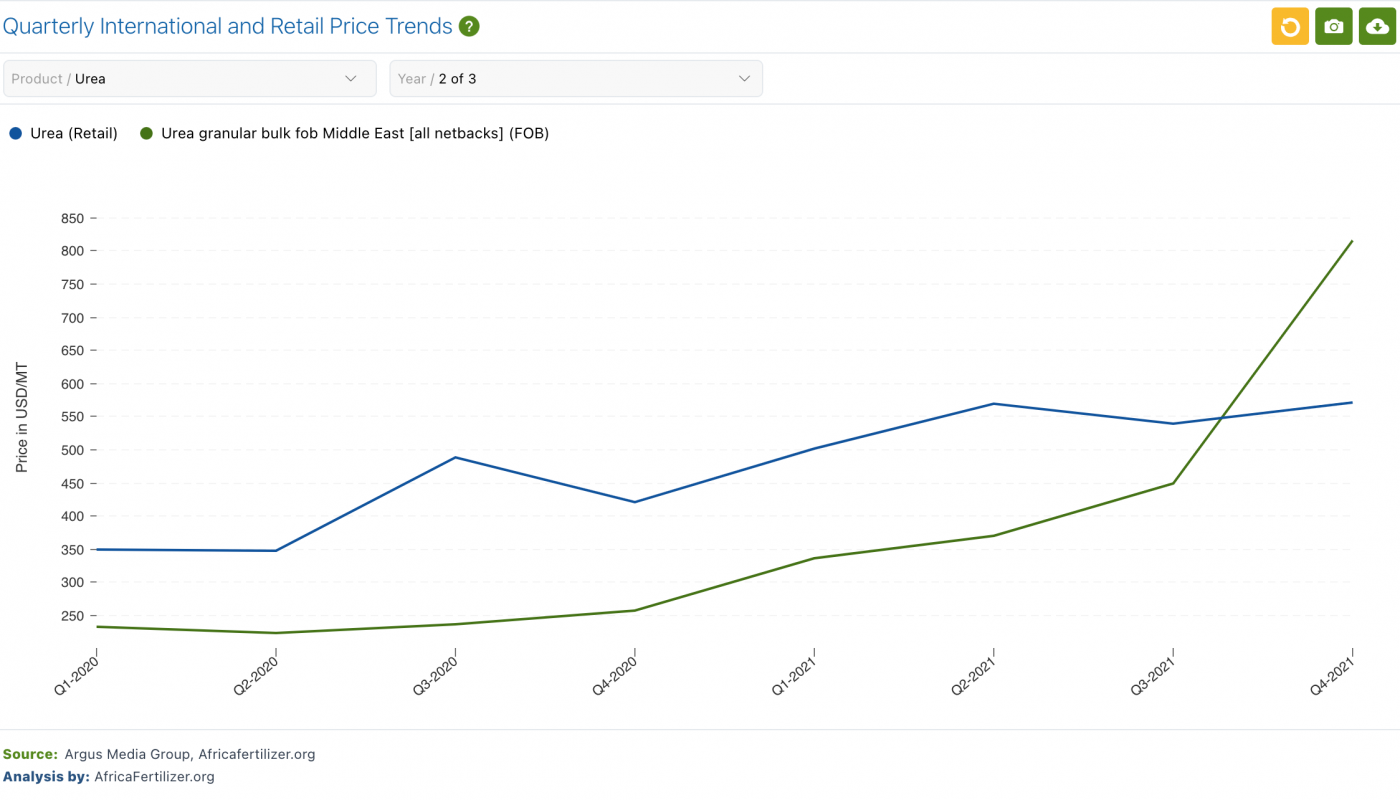Launching Today: Dashboard to Support Seed System Development in Africa
The newly launched Visualizing Information on Seeds Using Technology in Africa (TASAI-VISTA) Dashboard is designed to support the seed sector in Africa to visualize and use data to enhance access to improved seeds by smallholder farmers.
March 1, 2022, Djerba, Tunisia – Since 2019, Development Gateway: An IREX Venture (DG), The African Seed Access Index (TASAI), and Cornell University have been developing a new dashboard to support policy reform by government, investment priorities by development partners, and strategy by private companies working in Africa’s formal seed sector. The new, interactive digital tool will visualize and use data to support a fully functional formal seed system. The TASAI-VISTA Dashboard includes data from seventeen African countries, and displays 22 different indicators – such as number of active breeders by crop, availability of basic seed, number of active seed companies/producers, number of varieties sold, and number of seed inspectors.
For much of sub-Saharan Africa, rising populations combined with climate change and other environmental factors are threatening in food and nutritional security. Looking at improving seed quality is one factor that can help, but decision makers need information on where and how seed quality and availability are lagging. This dashboard is one step toward making that information more easily accessible, user-friendly, and actionable.
The TASAI-VISTA Dashboard was developed after an initial assessment of stakeholders in the seed sector. Following the assessment, DG and TASAI held a co-design workshop to get feedback and to validate initial findings before incorporating user responses into the final design.
Along with the public dashboard, DG and TASAI have developed survey tools for internal use by TASAI researchers which has allowed the team to digitize their data collection and data validation process. Data collected through the new tool is published on the dashboard after final validation.
About the Partners
About Development Gateway: An IREX Venture (DG)
Development Gateway provides data and digital solutions for international development. DG creates tools that help institutions collect and analyze information; strengthen the institutional capacity to use data; and explore what processes are needed to enable evidence-based decisions. A mission-driven nonprofit since 2000 with staff based in five global hubs and around the world, DG supports the use of data, technology, and evidence to create more effective, open, and engaging institutions.
About TASAI Inc.
The work of TASAI is coordinated by the nonprofit organization TASAI Inc. The central objective of TASAI is to promote the creation and maintenance of enabling environments for competitive seed systems serving smallholder farmers in Sub-Saharan Africa. It is this enabling environment that TASAI measures, tracks, and compares across African countries. The intended outcome of the project is improved access to locally adapted, affordable, and high-quality seeds of appropriate varieties by smallholder farmers in Sub-Saharan Africa. To date, TASAI studies have covered 20 countries in East, Southern, and West Africa. More at https://tasai.org.
About Cornell University
Cornell University is a global land-grant university with a long history of deep and profound international collaboration. The Department of Global Development in the College of Agriculture and Life Sciences is a unified development studies program dedicated to robust engagement with the world’s grand challenges at home and abroad. The department is committed to promoting food security, improving agricultural production and changing the world for the better. More at https://cals.cornell.edu/global-development.
Share
Related Posts
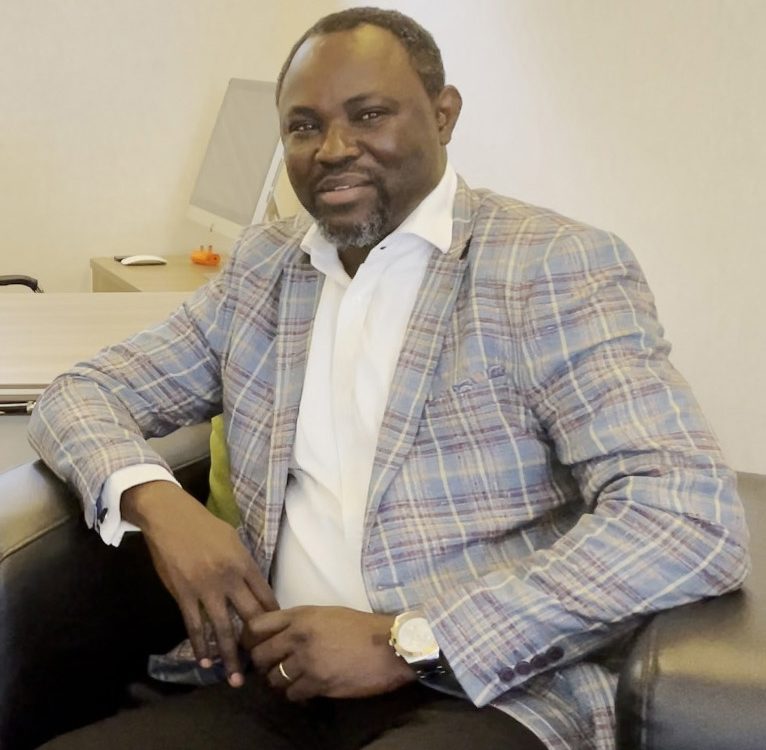
Q&A with Folarin Okelola from National Agricultural Seeds Council
Dr. Folarin Okelola from the National Agricultural Seeds Council (NASC) recently sat down with DGer Aminata Camara Badji to discuss the TASAI Dashboard, which was created in partnership with The African Seed Access Index (TASAI) and will help stakeholders assess seed quality, availability, accessibility, and price in 17 countries in Africa.
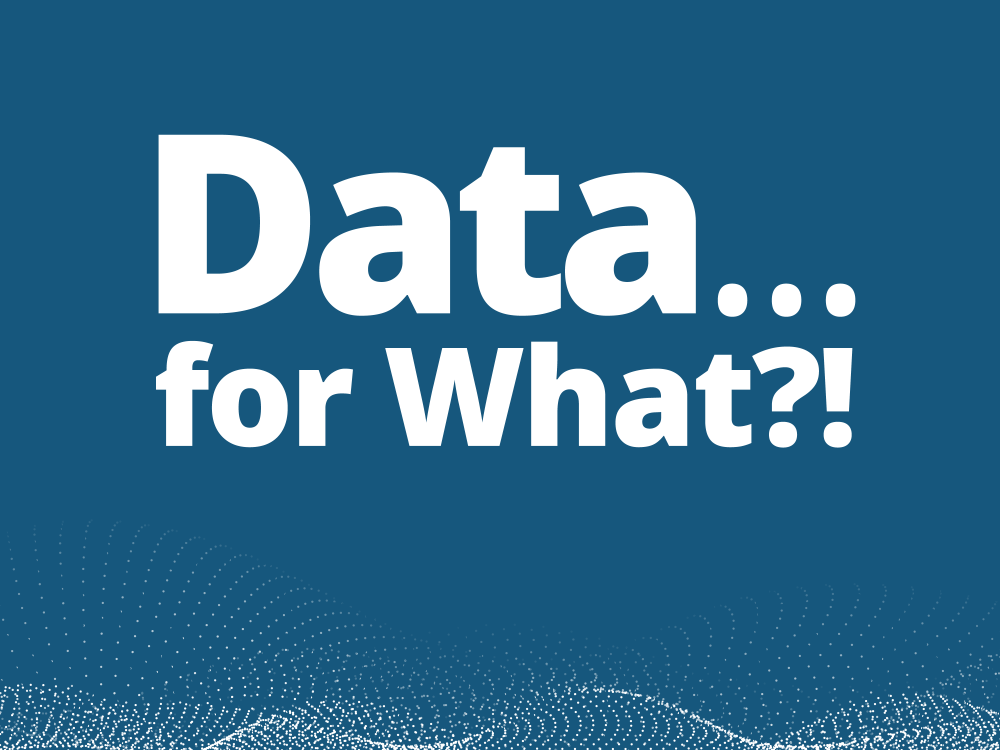
Episode 4, Season 1 | Digging Deeper in Agriculture
In this episode of "Data... for What?!" Josh talks to Charlene Migwe-Kagume about how we are approaching agriculture in our new strategy. DG has worked in Agriculture for a number of years, but how are we building on past experiences and our strengths to take this work forward? Josh and Charlene discuss digging deeper in agriculture and how innovation plays a role.
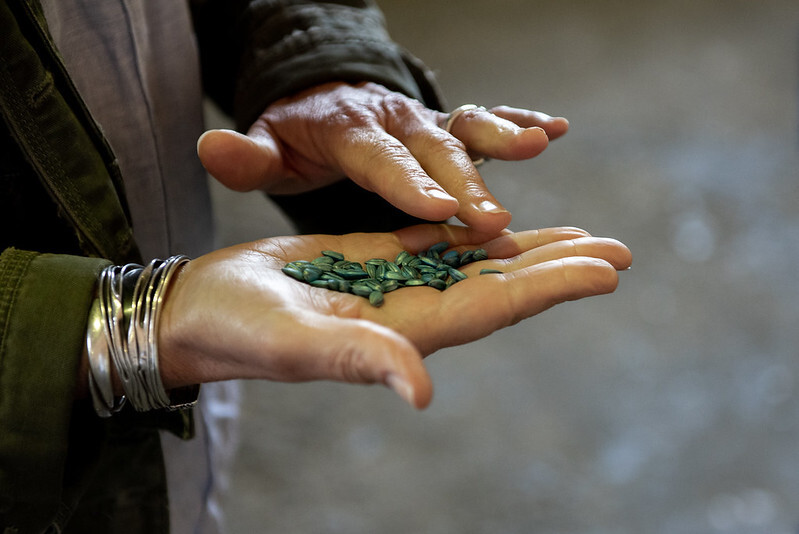
One Year of TASAI-VISTA
From the creation of survey tools to stakeholder mapping, one year into DG's partnership with TASAI, the Visualizing Information on Seeds Using Technology in Africa (VISTA) program has made great progress.
Announcing: The VIFAA Accelerator
VIFAA Going Forward
In November 2022, AfricaFertilizer (AFO), our partner on the Visualizing Insights on Fertilizer for African Agriculture (VIFAA) program, rebranded and launched a new website. This website includes the integration of country-specific VIFAA dashboards, which were previously housed in separate websites. By integrating the country-specific dashboards as well as fertilizer data on trade, production, consumption, and retail prices for 18 countries in sub-Saharan Africa, the new AFO data allows easier comparative analysis across countries and contributes its quota to the advancement of food security throughout Africa.
We have updated the previous country-specific dashboards links to now redirect you to AFO’s new website in order to ensure you are accessing the most up-to-date resources.
Since 2017, Development Gateway has been working on the Visualizing Insights on Fertilizer for African Agriculture (VIFAA) Program with support from the Bill & Melinda Gates Foundation and implemented in partnership with the International Fertilizer Development Center’s AfricaFertilizer.org program. The goal of the program is to support development partners and the private sector to respond efficiently and effectively to changes in the fertilizer market, ensuring that sufficient quantities and appropriate fertilizers reach farmers at the right time for planting. In order to reach this goal, VIFAA fills key fertilizer information gaps, increases data-driven policy and investment decisions in the fertilizer sector, and develops comprehensive, user-centered fertilizer data dashboards.
In late 2021, building on the successes around closing the data gaps and making the fertilizer data more accessible through dashboards, VIFAA received funding to expand the program to include four to six additional countries through 2023. We are calling this new phase the VIFAA Accelerator. The Accelerator came at an appropriate time as global fertilizer prices have had a significant impact on African markets’ that are highly vulnerable to the increase in agriculture input costs. In addition, the African Union Commission is planning to host the Africa Fertilizer and Soil Health Summit in 2023 where data-driven solutions will be instrumental in the development of a 10 year Fertilizer and Soil Health Action Plan for the continent.
Through the VIFAA program, we have developed fertilizer dashboards to support farmers in Kenya, Ghana, and Nigeria – in addition to the COVID-19 Africa Fertilizer Watch Dashboard. We are still in the process of refining the next phase of VIFAA countries. The prioritization process will review data availability and country stakeholder interest, among other considerations.
VIFAA Ghana Dashboard
VIFAA Kenya Dashboard
VIFAA Nigeria Dashboard
Highlights from VIFAA's First 4 Years
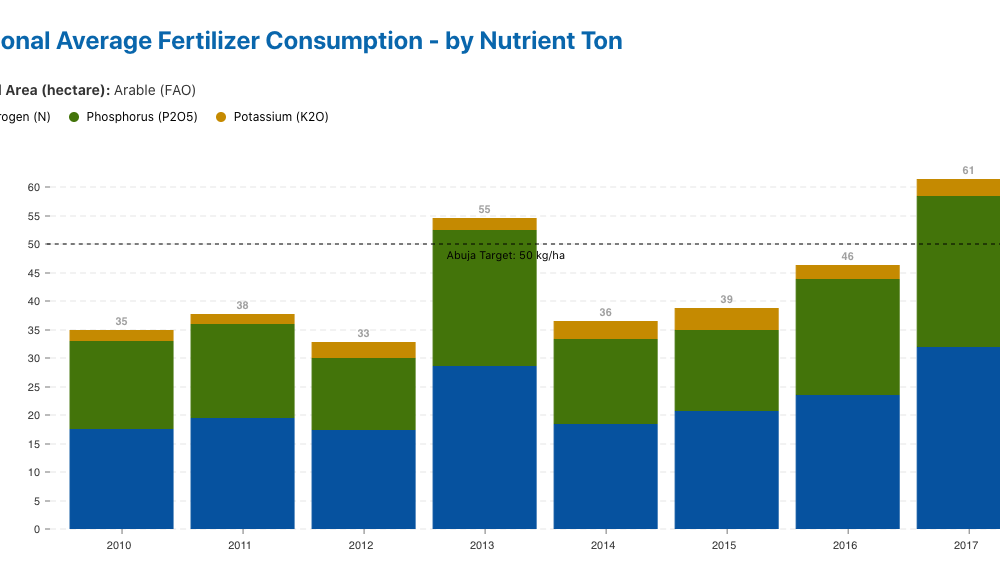
Understanding Fertilizer Data
Finding reliable agriculture data in sub-Saharan Africa is often difficult. If available at all, data is usually fragmented and tucked away in silos within government ministries or closely held by private companies. It is also significantly delayed or in a format that makes analysis difficult. For stakeholders who need information for decision making, a lack of reliable data is a significant barrier. The Visualizing Insights on Fertilizer for African Agriculture (VIFAA) program is working towards making fertilizer-related data, a key subset of agriculture data, more accessible to stakeholders for decision making.
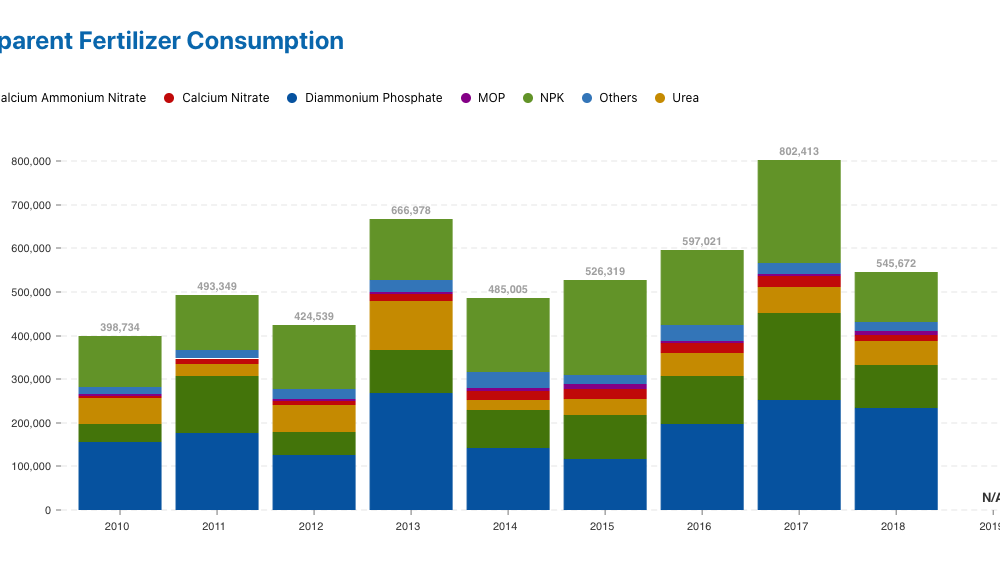
Sourcing Fertilizer Data in Sub-Saharan Africa
In advance of the first VIFAA country dashboard launch next week, we will explore the importance and source of accurate and reliable data for each of the indicators. This is a crucial step in making data available in a way that stakeholders can use to inform their decisions.
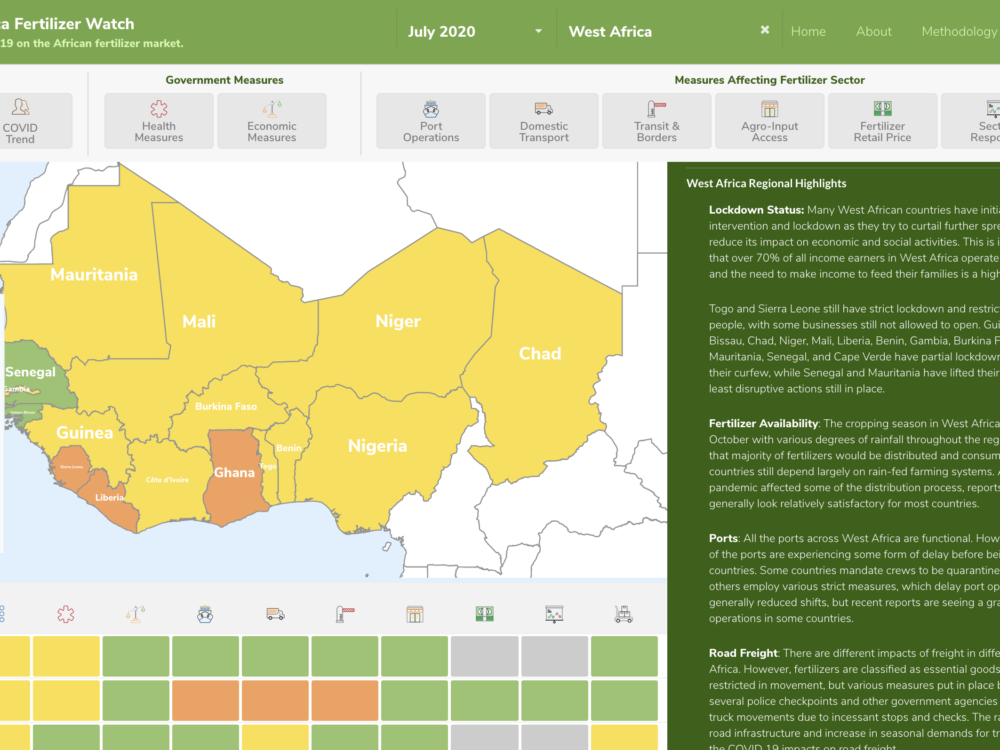
Measuring COVID-19’s Impact on the Fertilizer Sector in Sub-Saharan Africa
The COVID-19 Africa Fertilizer Watch Dashboard, covering 28 countries across sub-Saharan Africa was launched today. This dashboard uses 11 indicators to track COVID-19 country-specific mitigation measures on the delivery & use of fertilizers to identify impacts on productivity & food security across the continent. The goal of this dashboard is to support efficient and effective responses to the evolving global health emergency, and ensure that sufficient and appropriate fertilizers reach farmers.
VIFAA Impact Stories

From Rumors to Evidence-Based Advocacy
Mr. Gideon Negedu, the Executive Secretary of The Fertilizer Producers & Suppliers Association of Nigeria (FEPSAN,) describes using rumors for planning and the importance of the VIFAA Nigeria Dashboard in evidence-based advocacy.
Share
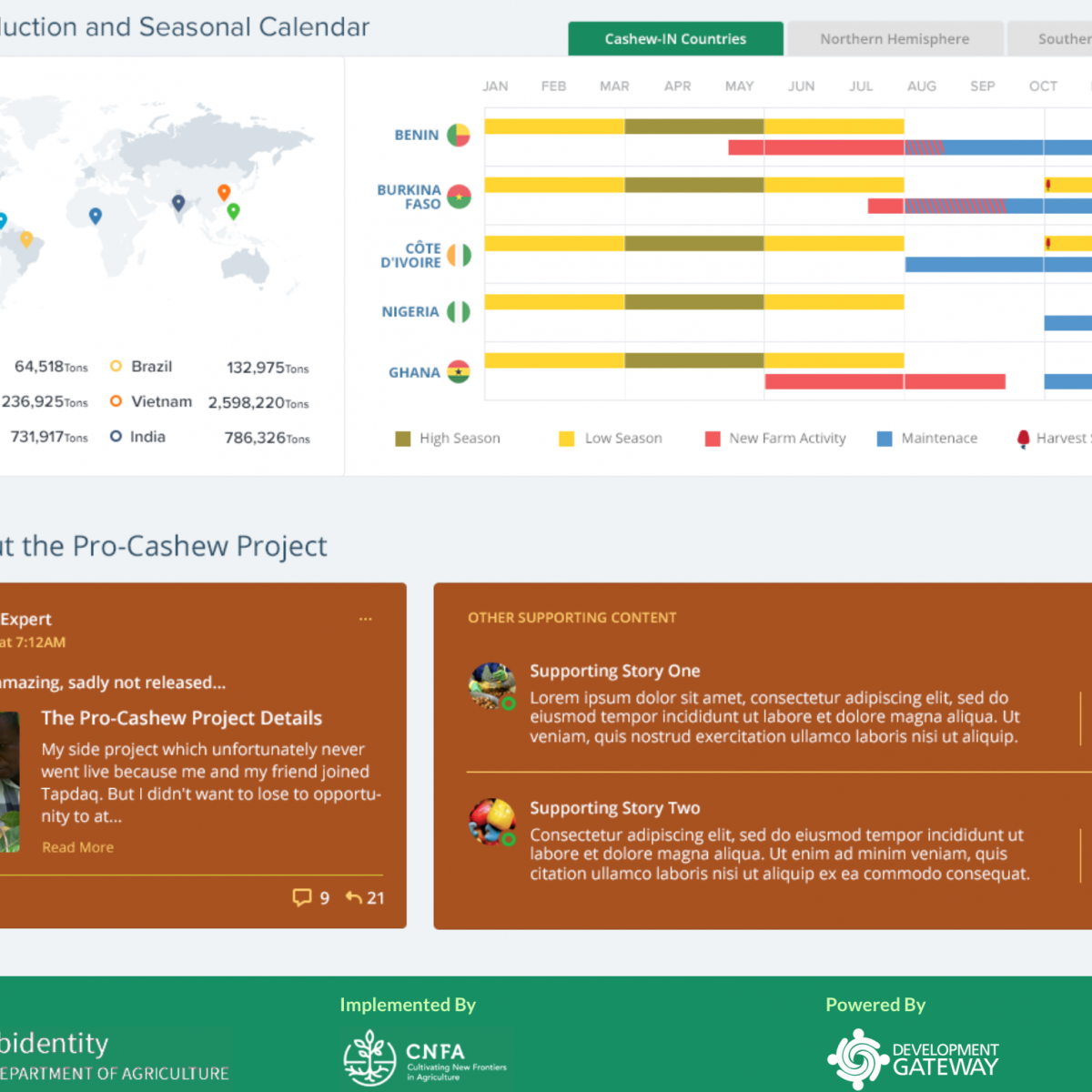
Lancement du prototype de la plateforme Cashew-IN
Development Gateway et Cultivating New Frontiers in Agriculture collaborent pour développer et une plateforme innovante, destinée à promouvoir le secteur de la noix de cajou en Afrique de l’Ouest et à accroître la rentabilité des producteurs de la filière anacarde.
Des données exhaustives et fiables peuvent contribuer à accroître les profits, à réduire les pertes ainsi qu’à améliorer la compétitivité des agriculteurs, des producteurs, des transformateurs et des autres acteurs du secteur de la noix de cajou. Development Gateway (DG) s’est associé à Cultivating New Frontiers in Agriculture (CNFA) dans le cadre du projet PRO-Cashew de l’USDA pour l’Afrique de l’Ouest pour développer Cashew-IN, une plateforme de collecte et d’analyse de données. Le développement de cette plateforme a été précédé d’une étude qui a permis d’identifier les lacunes dans la collecte, le stockage, l’utilisation et la diffusion des données du secteur de l’anacarde. La plateforme Cashew-In s’efforce de les combler grâce à un système de gestion des données sur la noix de cajou qui facilite leur accès et leur utilisation. L’objectif principal recherché est d’accroître la productivité et la compétitivité des cinq pays de mise en œuvre de ce projet (Côte d’Ivoire, Bénin, Burkina, Ghana et Nigeria) en améliorant la prise de décision des décideurs, des agriculteurs et des autres acteurs du secteur privé.
Rejoignez DG, CNFA, et leurs partenaires (le Conseil International Consultatif du Cajou, l’Agence Territoriale de Développement Agricole Borgou Sud-Donga-Collines, le Conseil Burkinabè de l’Anacarde, le Conseil du Coton et de l’Anacarde, le Nigeria Agribusiness Register et Tree Crops Development Authorities), pour le lancement du prototype de la plateforme Cashew-IN. Le lancement sera organisé via une plateforme virtuelle de visioconférence; la démonstration des premiers modules et fonctionnalités sera suivie d’échanges entre les différents participants.
“Les données sont essentielles pour accroître la compétitivité du secteur”
– Membre de l’association de la noix de cajou, Ghana
Le processus
Entre décembre 2020 et juillet 2021, l’équipe de DG a effectué une étude de cadrage à travers une combinaison de revue documentaire, de sondages et d’entretiens avec des acteurs clés de la filière anacarde des 5 pays de mise en oeuvre, pour mieux comprendre les processus décisionnels et les priorités en matière de données des différentes parties prenantes. DG a rencontré un total de 47 parties prenantes des secteurs public et privé, y compris des agriculteurs et des décideurs locaux.
Entre avril et juillet 2021, DG a organisé des ateliers de co-création pour présenter les résultats initiaux des évaluations, confirmer les thèmes d’intérêt et les données à intégrer dans la plateforme. Ces ateliers ont également été l’occasion de créer des comités de pilotage au niveau de chaque pays et de préciser leurs rôles et leurs responsabilités dans la mise en œuvre de la plateforme Cashew-In, durant et après le projet Pro Cashew.
Le développement technique de la plateforme a débuté après la compilation de tous les besoins en données des pays et l’identification des types de visualisation souhaités. Le site Web de la plateforme Cashew-IN est développé sur WordPress et présente une interface utilisateur conviviale et intuitive. Les informations affichées sont extraites de la base de données alimentée et gérée dans son intégralité par des opérateurs officiellement désignés dans chaque pays.
Sur la base des besoins exprimés et recueillis lors des activités qui ont précédé son développement, la plateforme Cashew-IN inclut des informations sur les prix du marché international, un calendrier saisonnier international, des cartes interactives affichant la localisation des vergers et des associations de producteurs ainsi que celle des unités de transformation classées par type (artisanales, semi-industrielles, industrielles). Les outils visuels afficheront des indicateurs liés à la production, à la capacité de transformation des différentes unités, au type de produits transformés et aux volumes de production. Tous les indicateurs seront agrégés au niveau infranational et les filtres intégrés permettront de préciser différents critères pour des analyses plus détaillées. Enfin, la plateforme inclut une variété de ressources pour les acteurs du secteur, allant des meilleures pratiques aux tendances et aux profils des consommateurs nationaux et internationaux.
“Gouverner c’est prévoir, prévoir c’est savoir, donc des données fiables et disponibles sont essentielles pour soutenir la prise de décision”.
– Représentant du gouvernement, Burkina Faso
Partenaires
Des accords de partenariat ont été signés avec les organisations présidant les comités de pilotage de Cashew-IN : Nigeria Agribusiness Register et le Conseil Burkinabè de l’Anacarde (CBA). D’autres sont en cours de finalisation avec le Conseil du Coton et de l’Anacarde – Côte d’Ivoire (CCA) ; l’Agence Territoriale de Développement Agricole Borgou Sud-Donga-Collines – Bénin (ATDA-4-BDC) ; Tree Crops Development Authorities – Ghana (TCDA).
Les Comités de pilotage de Cashew-IN prendront activement part à la mise en œuvre du projet à travers la réalisation d’activités inclus dans leurs plans d’action et de durabilité propre à leur contexte, défis et besoins.
Au niveau régional, le même processus sera établi par le biais d’un protocole d’accord avec le Conseil international consultatif du cajou (CICC) et par la mise en place d’un comité de pilotage régional qui comprendra des représentants des comités de pilotage au niveau national ainsi que d’autres acteurs internationaux (secteur privé, recherche, financiers, etc.).
A propos de Development Gateway
Development Gateway facilite l’accès et la disponibilité des données pour le développement durable. DG crée des solutions qui appuient les institutions à collecter et à analyser les informations; à renforcer la capacité institutionnelle d’utilisation des données et à systématiser l’utilisation des données dans les processus de décision. DG est une organisation à but non lucratif dont l’atout principal est son personnel présent dans le monde. Depuis 2000, DG promeut l’utilisation de la technologie et soutient l’utilisation des données et des preuves pour créer des institutions plus efficaces, plus ouvertes et plus engagées.
A propos de Cultivating New Frontiers in Agriculture
Cultivating New Frontiers in Agriculture est une organisation internationale de développement agricole spécialisée dans la conception et la mise en œuvre d’initiatives agricoles durables et axées sur les entreprises. CNFA travaille avec des entreprises, des fondations, des gouvernements et des communautés pour établir des partenariats locaux et internationaux personnalisés, qui répondent à la demande croissante de nourriture dans le monde. Depuis sa création en 1985, CNFA a conçu et mis en œuvre des initiatives de développement agricole basées sur les entreprises pour faciliter l’accès au marché, améliorer la compétitivité des entreprises agricoles, accroître la productivité et améliorer l’accès aux intrants et au financement dans 47 pays du monde.
Partager
Les Points Forts

Unlocking Africa’s Agricultural Potential: Introducing the Soil Nutrient Roadmap
For over a decade, Development Gateway: An IREX Venture (DG) has been at the forefront of digital agriculture, leveraging agricultural data to support input monitoring, value chain analysis, and farmer-centric governance models. With funding from the Gates Foundation, DG is launching the Soil Nutrient Roadmap (SNR), a cutting-edge initiative using geospatial data to estimate current and future soil and crop nutrient requirements.

Digital Transformation for Public Value: Development Gateway’s Insights from Agriculture & Open Contracting
In today’s fast-evolving world, governments and public organizations are under more pressure than ever before to deliver efficient, transparent services that align with public expectations. In this blog, we delve into the key concepts behind digital transformation and how it can enhance public value by promoting transparency, informing policy, and supporting evidence-based decision-making.
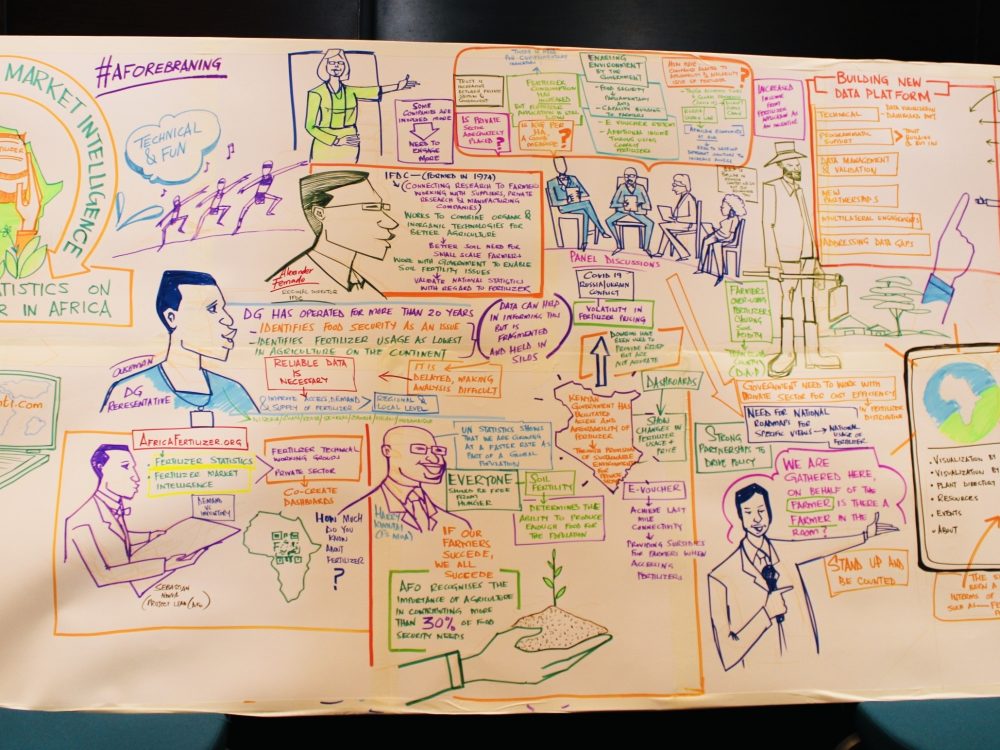
From Data Gaps to Impact: Key Insights from the VIFAA Program
Over the last six years, DG, together with its partners AfricaFertilizer (AFO) and Wallace & Associates, collaborated to implement the Visualizing Insights on Fertilizer for African Agriculture (VIFAA) Program. In the program’s final year (2024), the team undertook a “program learning process” to reflect on outcomes, challenges, and successes through internal interviews. This blog captures five key learnings, which we hope will guide similar programs aiming to bridge data gaps in agricultural development.

Launching the First of It’s Kind Cashew-IN Platform Prototype
Development Gateway and Cultivating New Frontiers in Agriculture are partnering to launch an innovative Platform to support the West African cashew sector and increase profitability for cashew farmers.
For cashew farmers, producers, processors, and others in the West African cashew sector to increase profits, reduce loss, and improve global competitiveness, comprehensive and reliable data is required. Development Gateway has partnered with Cultivating New Frontiers in Agriculture (CNFA) under the USDA West Africa PRO-Cashew project to develop the Cashew-IN data collection and analysis platform. The project first identified gaps in the data collection, storage, usage and dissemination and is addressing these gaps through a multi-country cashew data management system (Cashew-IN) that will facilitate access to and use of data to improve decision-making for policymakers, farmers, and the private sector. The ultimate goal is to generate better market outcomes for cashew nuts in the five implementing countries (Benin, Burkina Faso, Côte d’Ivoire, Ghana, and Nigeria).
On December 20 at 14:00 GMT+0, join DG, CNFA, and partners (Consultative International Cashew Council, Agence Territoriale de Développement Agricole Borgou Sud-Donga-Collines, Conseil Burkinabè de l’Anacarde, Conseil du Coton et de l’Anacarde, Nigeria Agribusiness Register, the Tree Crops Development Authorities), for the launch of the Cashew-IN Platform prototype. The launch will be virtual and will include a demonstration of the Platform and time for feedback and discussion.
“The generation of data is key to making the sector competitive”
– Cashew Association Member, Ghana
The Process
Between December 2020 and July 2021, DG’s project team carried out a desk review, circulated a web-based survey, and conducted key informant interviews to dive deeper into the decision-making processes and data priorities of individual stakeholders. DG met with a total of 47 public and private sector stakeholders, including farmers and local decision makers.
Between April and July 2021, DG organized co-design workshops to present the assessments initial findings; confirm the themes and available data to be integrated in the platform; and establish and define the roles and responsibilities of the Cashew-IN platform steering committee.
Hands-on development began after the last workshop, having compiled all country data and visualization needs. Development of the Cashew-IN web application will include a user interface powered by WordPress, a user friendly and intuitive website software. It will extract its information from the embedded database populated with data entered by officially designated operators.
The Cashew-IN Platform will feature information on prices in the international market; international seasonal calendar; GIS maps showing the location of farms and farmer associations, production-related indicators aggregated at regional level (production, yield, density, etc.); GIS map of processing facilities by type (artisanal, semi-industrial, industrial); indicators related to the processing capacity of different units, type of processed products, and production volumes; information and trends on consumer profiles in national and international markets; and other resource modules.
“Governing is forecasting, forecasting is to know, therefore reliable and available data are essential to support decision making”
– Government Representative, Burkina Faso
Partners
Partnership agreements have been signed with the chair of Cashew-IN steering committees: Nigeria Agribusiness Register and the Conseil Burkinabè de l’Anacarde (CBA) and others are being finalized with Conseil du Coton et de l’Anacarde – Côte d’Ivoire (CCA); Agence Territoriale de Développement Agricole Borgou Sud-Donga-Collines – Bénin (ATDA-4-BDC); Tree Crops Development Authorities – Ghana (TCDA); Country-based Cashew-IN Steering Committees will be responsible for the implementation of the Cashew-IN during and after the project, including formalizing partnerships agreements with complementary program implementers, action plan and sustainability plan in each country. At global level, the same process will be established through an MoU with the Consultative International Cashew Council (CICC) and by setting up of a global steering committee that will include representatives of the steering committees at country level as well as other international actors (private sector, research, financiers, etc.)
About Development Gateway (DG)
Development Gateway provides data and digital solutions for international development. DG creates tools that help institutions collect and analyze information; strengthen the institutional capacity to use data; and explore what processes are needed to enable evidence-based decisions. A mission-driven nonprofit since 2000 with staff based in five global hubs and around the world, DG supports the use of data, technology, and evidence to create more effective, open, and engaging institutions.
About Cultivating New Frontiers in Agriculture (CNFA)
Cultivating New Frontiers in Agriculture is an international agricultural development organization that specializes in the design and implementation of sustainable, enterprise-based agricultural initiatives. We work with businesses, foundations, governments, and communities to build customized local and global partnerships that meet the world’s growing demand for food. Since our inception in 1985, we have designed and implemented enterprise-based, agricultural development initiatives to facilitate market access, enhance agribusiness competitiveness, increase productivity, and improve access to inputs and financing in 47 countries around the world.
Share
Related Posts

Unlocking Africa’s Agricultural Potential: Introducing the Soil Nutrient Roadmap
For over a decade, Development Gateway: An IREX Venture (DG) has been at the forefront of digital agriculture, leveraging agricultural data to support input monitoring, value chain analysis, and farmer-centric governance models. With funding from the Gates Foundation, DG is launching the Soil Nutrient Roadmap (SNR), a cutting-edge initiative using geospatial data to estimate current and future soil and crop nutrient requirements.

Digital Transformation for Public Value: Development Gateway’s Insights from Agriculture & Open Contracting
In today’s fast-evolving world, governments and public organizations are under more pressure than ever before to deliver efficient, transparent services that align with public expectations. In this blog, we delve into the key concepts behind digital transformation and how it can enhance public value by promoting transparency, informing policy, and supporting evidence-based decision-making.

From Data Gaps to Impact: Key Insights from the VIFAA Program
Over the last six years, DG, together with its partners AfricaFertilizer (AFO) and Wallace & Associates, collaborated to implement the Visualizing Insights on Fertilizer for African Agriculture (VIFAA) Program. In the program’s final year (2024), the team undertook a “program learning process” to reflect on outcomes, challenges, and successes through internal interviews. This blog captures five key learnings, which we hope will guide similar programs aiming to bridge data gaps in agricultural development.
Announcing a New Board Chair & Six New Board Members
Development Gateway, An IREX Venture is pleased to announce the appointment of a new chair of its Board of Directors, Aleksander Dardeli, and six new members of the Board: Dr. Jennifer Bangoura, Worku Gachou, George Kogolla, Dalen Todd, Dr. Hasan Tuluy, and Dr. Zainab Usman. The new chair and directors will provide strategic direction and guidance to Development Gateway’s work supporting decision-makers around the world to better collect, visualize, and use data to inform planning, policy, and programming; furthering transparency and accountability.
Introducing the New Board Members
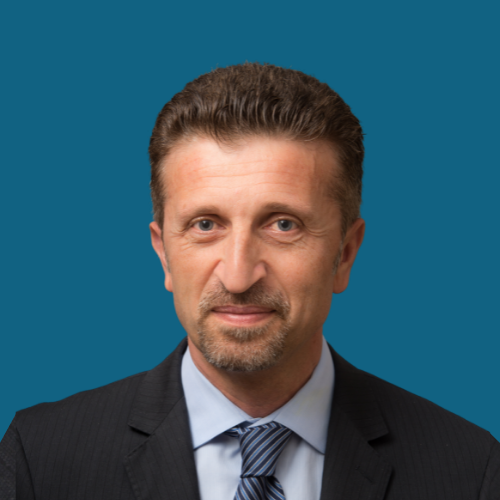
Aleksander Dardeli is executive vice president at IREX. He is responsible for ensuring that IREX effectively navigates market and geopolitical trends and successfully seizes business opportunities. He is also responsible for creating long-term value for IREX through innovation and partnerships, maximizing impact through learning, and effectively communicating the impact of IREX’s work to beneficiaries and strategic stakeholders.
Before focusing on strategy and development, Aleksander served as vice president of the Democracy, Governance, and Media Division of IREX and oversaw the IREX Center for Collaborative Technology, a portfolio of major activities and initiatives in 30 countries. Prior to that, he was executive vice president of IBI International, a private company that specializes in governance and public administration reform.
His 25 years of experience include serving as practice director of DynCorp International/Casals’s Global Democracy and Governance Practice, director of legal programs of the East-West Management Institute, and head of project development for the International Development Law Organization, an intergovernmental organization based in Rome, Italy.
Aleksander led major good governance, justice, institutional reform, and media development initiatives in emerging economies and post-conflict environments. He directed a high-profile project in Kosovo that was embedded in the Office of the Prime Minister of Kosovo and helped prepare the Office of the Prime Minister and six ministries for Kosovo’s transition to independence.
He writes frequently about promoting good governance, fighting corruption, strengthening media to produce content that matters, and making foreign aid more effective, and has been interviewed by media outlets including BBC and Voice of America. A former Fulbright scholarship recipient, he graduated summa cum laude from the University of Tirana and has a master’s degree from Columbia University and a juris doctor degree from the Catholic University of America.
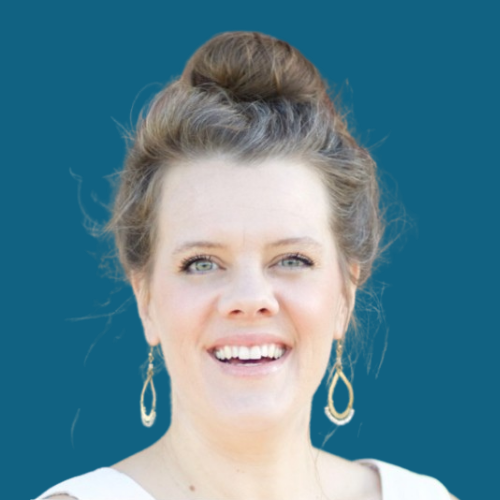
Dr. Jennifer Bangoura is the director of Career Innovation for Nexford University and a consultant for the Future of Learning Fund, an early-stage investment fund to invest in new and improved models of learning that prepare Africans for the future of work.
Prior to her role at Nexford University, Dr. Bangoura was an Industry Engagement Network Manager at 2U where she identified strategic industry partners to hire students and alumni of 2U-powered programs and provided 1:1 and group career coaching. Dr. Bangoura also previously worked on IREX’s workforce development programs in Morocco and Iraq and the World Resources Institute on their West and Central African forestry programs. As a Peace Corps Volunteer in Mali, she worked on environmental programs related to shea butter and reforestation and served as a communications specialist for a USAID-funded teacher training and literacy program with Education Development Center.
She is an advisory board member of the Peace and Collaborative Development Network and active in PEO International, an organization dedicated to providing educational opportunities for women worldwide. Dr. Bangoura received a Doctor of Education in organizational change and leadership from the University of Southern California, a Master’s in International Education from the SIT Graduate Institute, and a Bachelor’s in Art History and French from the University of Mary Washington. She is a native English speaker, fluent in French, and conversational in Bambara, and lives in Lilongwe, Malawi.

Worku Gachou is the vice president of Inclusive Impact & Sustainability at Visa, where he leads the company’s efforts to drive inclusive and equitable economic growth in North America.
Prior to Visa, Mr. Gachou was a senior political appointee at the U.S. International Development Finance Corporation (DFC) where he served as a key adviser to the agency’s Chief Executive Officer and oversaw a regional portfolio of over $5 billion in impact investments. Before joining DFC, Mr. Gachou was a policy advisor in Covington & Burling LLP’s Public Policy and Government Affairs practice. At Covington, he advised corporate clients on various complex matters, including high-level political advocacy, mergers and acquisitions diligence, and market entry strategies. Prior to Covington, Mr. Gachou was a senior staffer on the Committee on Foreign Affairs in the U.S. House of Representatives where he managed the Africa, environmental, and conservation portfolio. During his time at the Committee, he helped draft several landmark pieces of legislation that eventually became law, including the Electrify Africa Act, the END Wildlife Trafficking Act, and the reauthorization of the African Growth and Opportunity Act.
Mr. Gachou is an adjunct professor at Georgetown University’s School of Foreign Service and a Term Member of the Council on Foreign Relations. He earned a Bachelor of Arts degree in Political Science from DePaul University and a Master of Arts in Liberal Studies from Georgetown University.

George Kogolla is the IREX representative in Kenya and East Africa, where he supports global new business efforts by expanding IREX’s current portfolio of collaborative partnerships and programs designed and carried out with the support of non-US government donors.
Prior to joining IREX, George worked for the British Council as their Director of Programmes and Partnerships in Kenya, providing strategic leadership to the development, implementation, and evaluation of an innovative portfolio of programs as well as building an active pipeline of partners and funders for British Council’s work in Kenya and the wider Eastern Africa region. George was also the Executive Director for Carolina for Kibera an international NGO based in Nairobi affiliated to the University of North Carolina at Chapel Hill and a co-founder of a youth empowerment organization Youth Alive! Kenya, where he served as the Executive Director between 2001 and 2009.
George has served in several non-profit boards and brings a deep understanding of development in the African context and business and organizational development acumen to the Board of Development Gateway. He holds a Master of Public Administration – International Development (MPA-ID) from the University of York and lives in Nairobi, Kenya.
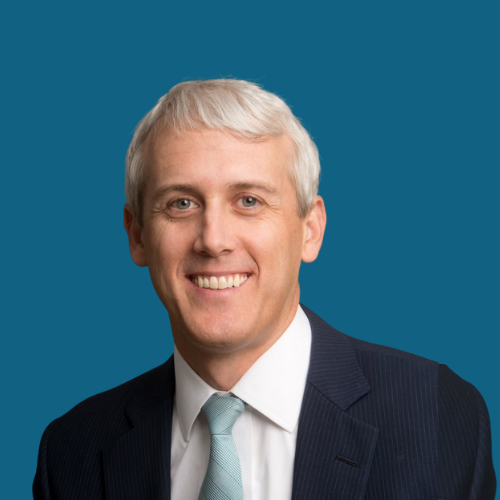
Dalen Todd is senior director of Business Development at IREX. In this role, Dalen oversees public and private fundraising efforts at IREX and is a member of the senior management team. Dalen has over 15 years of business development experience with a wide range of donors.
Dalen’s background includes both non-governmental organizations and private sector start-up operations. He previously served as finance director for IREX Europe and has strong experience in budgeting, financial and administrative compliance, and financial analysis.
Dalen received his Bachelor of Arts in international studies from the University of North Carolina, Chapel Hill, and his Master of Business Administration from Indiana University.
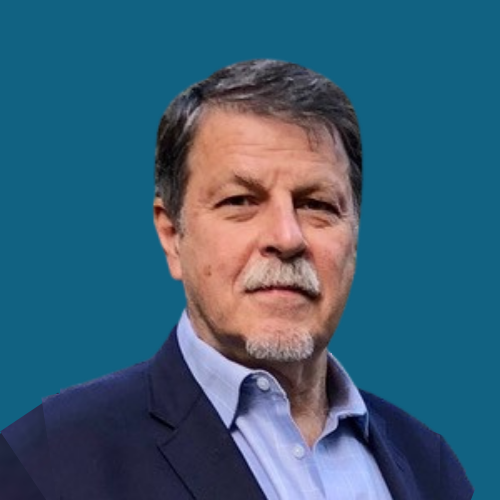
Dr. Hasan Tuluy is an economist with nearly four decades of experience in Africa, the Middle East and North Africa, and Latin America. He is currently with the Centennial Group where he advises multilateral and bilateral development institutions, and countries on development strategy and on organizational design issues.
For 27 years, Dr. Tuluy held various executive positions at the World Bank. He served as a Vice President for Latin America and the Caribbean region from 2012 to 2014, overseeing the program of engagement with 32 member countries. From 2008 to 2011, he was a Vice President for Human Resources guiding strategy, policy, and implementation for the Bank’s 15,000 diverse and decentralized staff. In 2007-2008, as the Chief Operating Officer of the Multilateral Investment Guarantee Agency, he initiated a turnaround to bring the agency back to profitability. During the period from 2003 to 2007, Dr. Tuluy was Director of Strategy and Operations for the Middle East and North Africa region of the World Bank responsible for program implementation and portfolio quality. Between 2001-2003, he served as Director of Corporate Strategy. Before that he worked as Country Director in West Africa (1996-2000) and economist in various country and sector programs (1987-1995). Prior to joining the World Bank Group, he worked for around a decade in research and private consulting on trade and price policy issues in Africa and the Maghreb.
He is on the Board for Partnership for Transparency Fund and formerly served on the Board for IREX. Dr. Tuluy holds a Ph.D. in Development Economics and Trade from the Fletcher School, Tufts University.

Dr. Zainab Usman is a senior fellow and director of the Africa Program at the Carnegie Endowment for International Peace in Washington, D.C. Her fields of expertise include institutions, economic policy, energy policy, and emerging economies in Africa. Her forthcoming book, Economic Diversification in Nigeria: the Politics of Building a Post-Oil Economy, is set to be published by Zed/Bloomsbury Press in February 2022.
Prior to Carnegie, Dr. Usman was at the World Bank initially as part of the prestigious Young Professionals Program and later as a Public Sector Specialist. At the World Bank, she worked on social sustainability, policy reforms, natural resources management, and disruptive technologies. She has worked on these issues in Cote d’Ivoire, Morocco, Nigeria, Papua New Guinea, the Republic of Congo, Serbia, Tanzania, and Uzbekistan. She has also worked at the Blavatnik School of Government at the University of Oxford and has consulted for the Department of International Development and the Office of the National Security Adviser in Nigeria.
Dr. Usman’s research has been published on various academic, policy, and media platforms. She is co-editor of the book, The Future of Work in Africa: Harnessing the Potential of Digital Technologies for All. She also contributed to World Bank’s flagship report on Rethinking Power Sector Reforms in Developing Countries. She sits on the advisory board of the Energy for Growth Hub in Washington, D.C., and on the editorial board of Premium Times in Nigeria. Dr. Usman holds a Ph.D. in International Development from the University of Oxford.
We are truly thankful to board members Adrianus Melkert, Lindsay Coates, Homi Kharas, Brenda Killen, Panthea Lee, and Rian Wanstreet who are rotating off the board this year. DG is appreciative of the time and expertise these former members have dedicated to supporting DG’s mission. The Board changes are part of Development Gateway and IREX’s new strategic partnership.
A complete list of Board Members can be found on our website here.
Share
Related Posts
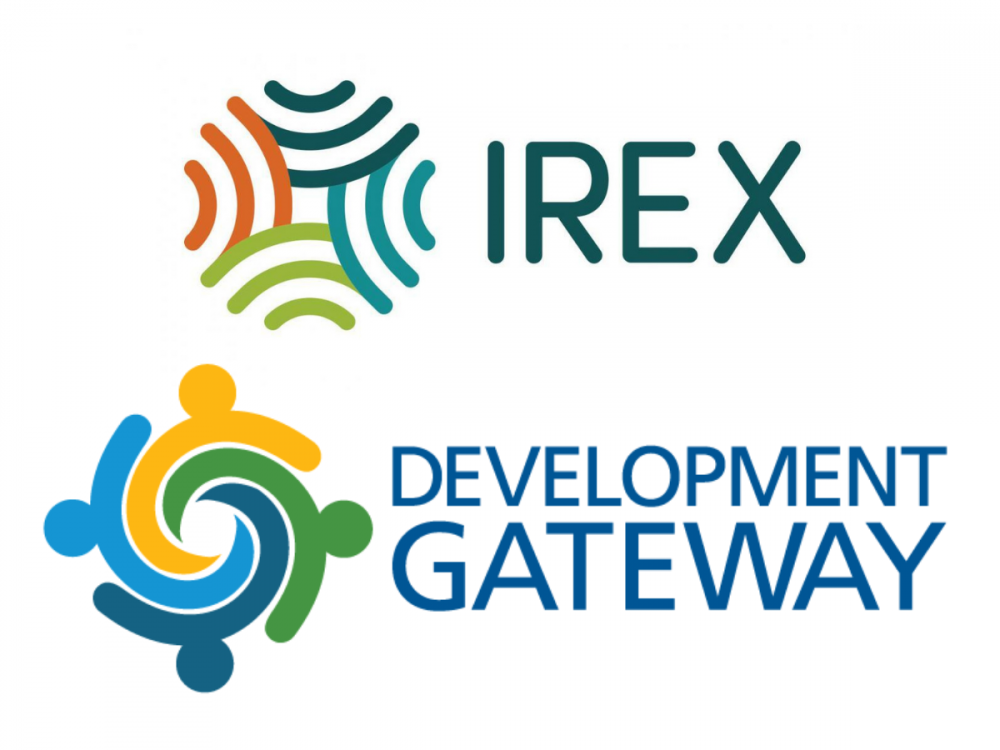
Development Gateway and IREX Announce a Strategic Partnership
Today we announce a new strategic partnership between Development Gateway & IREX, which positions DG as a subsidiary of IREX. The partnership will combine IREX’s thematic expertise, forward-leaning solutions, global footprint, and systems for tracking, measuring, and learning with Development Gateway’s innovative use of data, technology, and evidence.
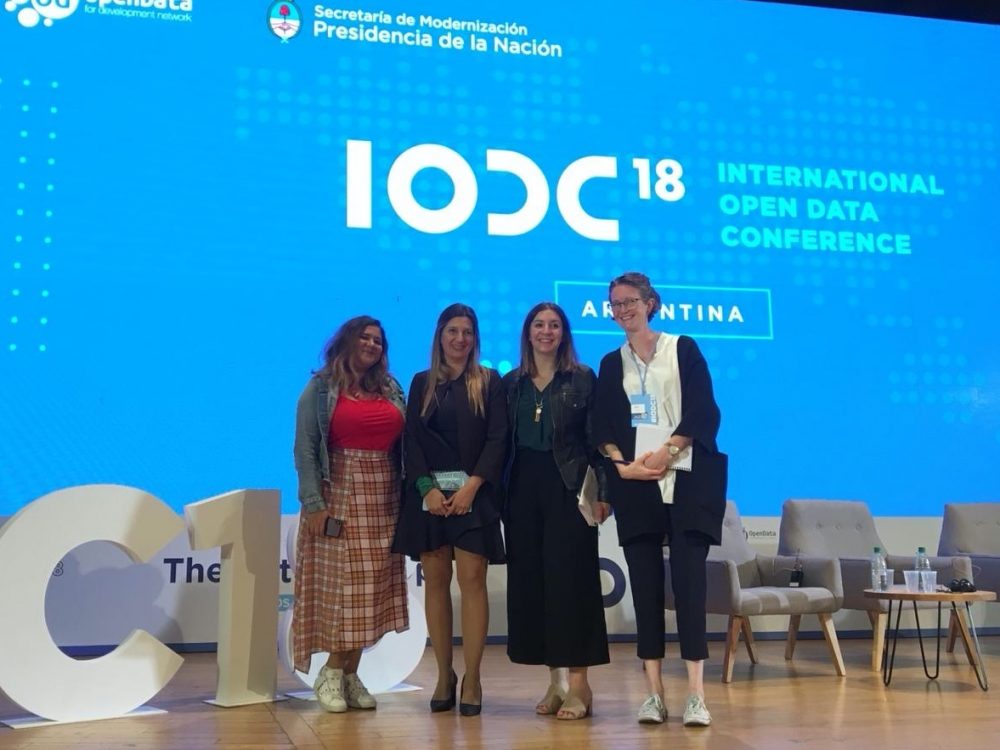
Our Partnerships Make Us DG
Out of DG’s twelve core values, five are centered on partners and partnerships. Our ability to achieve sustainability and impact is greatly dependent on our strong partnerships, which expand beyond our expertise alone. From our early days co-designing the Aid Management Platform with the Government of Ethiopia and other partners, to today, partnerships are what make DG, DG.

From Rumors to Evidence-Based Advocacy
Mr. Gideon Negedu, the Executive Secretary of The Fertilizer Producers & Suppliers Association of Nigeria (FEPSAN,) describes using rumors for planning and the importance of the VIFAA Nigeria Dashboard in evidence-based advocacy.
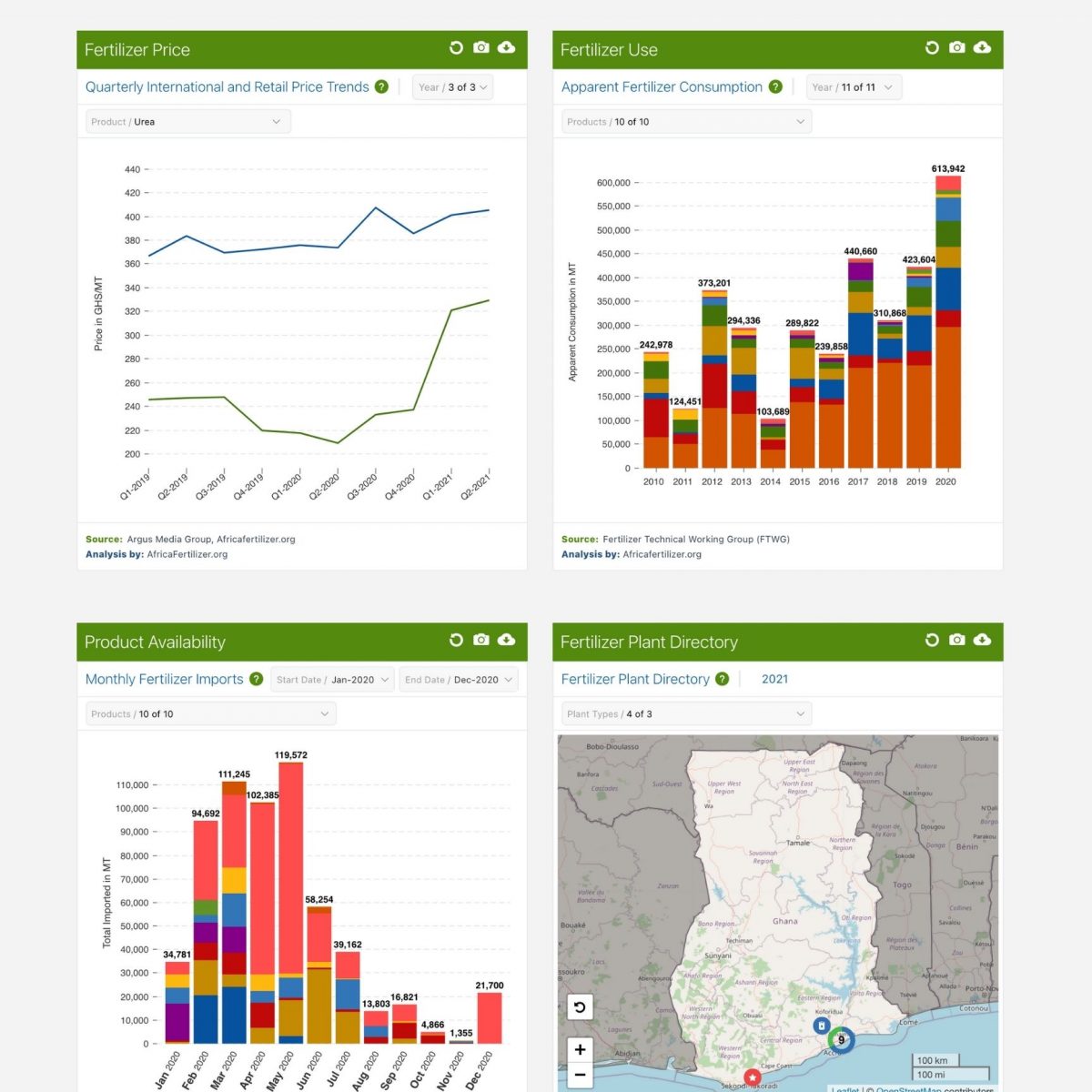
The Evolution of Ghana’s Fertilizer Sector – From Subsidies to Crop Specifics
Through the Visualizing Insights on Fertilizer for African Agriculture (VIFAA) Program, Development Gateway – and partners International Fertilizer Development Center (IFDC) and AfricaFertlizer.org – aim to fill key fertilizer information gaps, increase data-driven policy and investment decisions in the fertilizer sector, and develop comprehensive, user-centered fertilizer data dashboards. The goal is to support development partners and the private sector to respond efficiently and effectively to changes in the fertilizer market, ensuring that sufficient quantities and appropriate fertilizers reach farmers at the right time for planting.
This is the second blog of our three part blog series on Ghana’s Fertilizer sector. The first blog can be found here.
In looking at the data and talking to stakeholders in Ghana, several key trends are starting to emerge in the country’s fertilizer market and in turn through the data captured in the VIFAA Ghana Dashboard. These trends are important for decision-makers planning for each season, and when thinking about the future of the market. In this blog we’ll dive into these features of the Ghana market, including where (and how) the data fits in.
Subsidies
Subsidies were the topic most commonly mentioned during stakeholder interviews, and in many ways subsidies are intertwined with all aspects of the market. Started in 2008, there is a thirteen step approach1 to subsidies that includes a plan to gradually phase the subsidy program out. However, subsidies are highly political. As farmers do not always see farming as a business, subsidies become a government program to ensure food security. One politician we spoke to mentioned that subsidies cannot be reduced during an election year because it would be too unpopular. Subsidies make up 80% of the total Ghana fertilizer market,2 making it a key consideration for new businesses wanting to enter the market.
There is a clear link between fertilizer consumption and subsidies. 2014, for example, had the lowest apparent fertilizer consumption in the past eleven years – which was also a year when the government did not provide subsidies. Under the current subsidy plan, each farmer receives fifteen bags of fertilizer (5 urea and 10 NPK). It is hard to truly know how much of that is used each year and how much might be resold or smuggled out of the country for a profit. The VIFAA Dashboard could be one tool used to better understand how many bags of fertilizer each farmer actually needs by informing policy on when to buy/import/distribute fertilizers-based on import data; when to sign contracts for companies to buy fertilizer under the subsidy program based on international price; and where to buy fertilizer blends.
One of the major differences between the VIFAA Ghana Dashboard and other VIFAA country dashboards (Kenya and Nigeria) is the information and visualization on commercial price compared to subsidized price. This chart was included to compare the difference in prices between commercial fertilizers and subsidized fertilizer products, ultimately showing the margin of support farmers are getting. Additionally, the Annual Government Contribution to Subsidy Price by Product chart makes it clear how much the government is contributing to the subsidy prices.
This information is more critical than ever as 80% of fertilizer supply is provided through government targeted subsidies. The VIFAA Ghana dashboard enables MOFA to easily access the data needed to make decisions on subsidizing blends to ensure farmers do not face supply shortages or unaffordable fertilizer.
New Crop-Specific Blends
Ghana is leading the way in tailored, crop-specific blends. Not only is Ghana importing more diverse fertilizer types, but in blending plants around the country, Ghana is also blending unique blends. Soil scientists have specified some fertilizers to be used in the country, and while these are generally closer to blanket blends, they are also more specialized for particular crops. In addition, the VIFAA Ghana Dashboard includes information on organic fertilizers, which isn’t consistently available in a number of other countries, as part of apparent fertilizer consumption and denotes which fertilizer plants include organic fertilizers.
Subsidies in Ghana have played a role in new fertilizer blends as well. Historically, the government was primarily subsidizing any kind of NPKs, even types that were not good for the soil. A 2018 change in regulations implemented in 2019 has encouraged more site-specific fertilizers based on soil testing performed by the Soil Research Institute. The new formulations include micronutrients that enrich the soil. While the formulation was originally site-specific, the push is now for more crop-specific blends. As the government puts out new tenders, we have seen the shift to soy or maize-specific blends, for example.
Market Trends in the North & the South
Northern and Southern Ghana have some distinct differences in the agricultural environment which impact the fertilizer sector in each part of the country. Northern Ghana has harsher climate conditions, with one annual rainfall season and generally erratic rainfall patterns. Southern Ghana has two rainfall seasons with relatively more stable climate conditions.3,4 From a data perspective, there are clear regional differences in price between Northern and Southern Ghana. One of the biggest surprises, as seen on the dashboard, is that the cost of fertilizer is lower in the North, where the price was expected to be higher. The data was validated with the Fertilizer Technical Working Group, which means the fertilizer sector has a common understanding of this data point. Looking at the overall cost build up, specifically transportation costs, will be a useful dataset moving forward to further explain the difference in prices in the two regions
A second notable difference is that fertilizer blending plants are primarily located in the South. During a meeting this past August with Ghana’s Parliament Select Committee on Agriculture, committee members were surprised by the plant directory, noticing that there is a lack of blending plants in the North. They then suggested the need to plan for future plants in the region in order to reduce costs and to develop additional region-specific fertilizer blends.
Overall, having a platform that speaks to the private sector, public sector, and farmers with one unified voice is a starting point for decision-making that is evidence-based, and can continue Ghana on its path to evolving its fertilizer sector to meet the country’s food security needs.
—
References:
1. USAID & IFDC, 2019 Guide for Subsidy Programs, Improving the Design and Implementation of Fertilizer Subsidy Programs in West Africa, Proposed Guidelines for Smart Subsidy Programs.
2. USAID & IFDC, 2019, Ghana Fertilizer Value Chain Optimization Study.
3. Ghana National Drought Plan
4. Asante and Amuakwa-Mensah (2015) Climate Change and Variability in Ghana: Stocktaking, Climate 3(1):78-99.
VIFAA Going Forward
In November 2022, AfricaFertilizer (AFO), our partner on the Visualizing Insights on Fertilizer for African Agriculture (VIFAA) program, rebranded and launched a new website. This website includes the integration of country-specific VIFAA dashboards, which were previously housed in separate websites. By integrating the country-specific dashboards as well as fertilizer data on trade, production, consumption, and retail prices for 18 countries in sub-Saharan Africa, the new AFO data allows easier comparative analysis across countries and contributes its quota to the advancement of food security throughout Africa.
We have updated the previous country-specific dashboards links to now redirect you to AFO’s new website in order to ensure you are accessing the most up-to-date resources.
Share
Related Posts

From Data Gaps to Impact: Key Insights from the VIFAA Program
Over the last six years, DG, together with its partners AfricaFertilizer (AFO) and Wallace & Associates, collaborated to implement the Visualizing Insights on Fertilizer for African Agriculture (VIFAA) Program. In the program’s final year (2024), the team undertook a “program learning process” to reflect on outcomes, challenges, and successes through internal interviews. This blog captures five key learnings, which we hope will guide similar programs aiming to bridge data gaps in agricultural development.
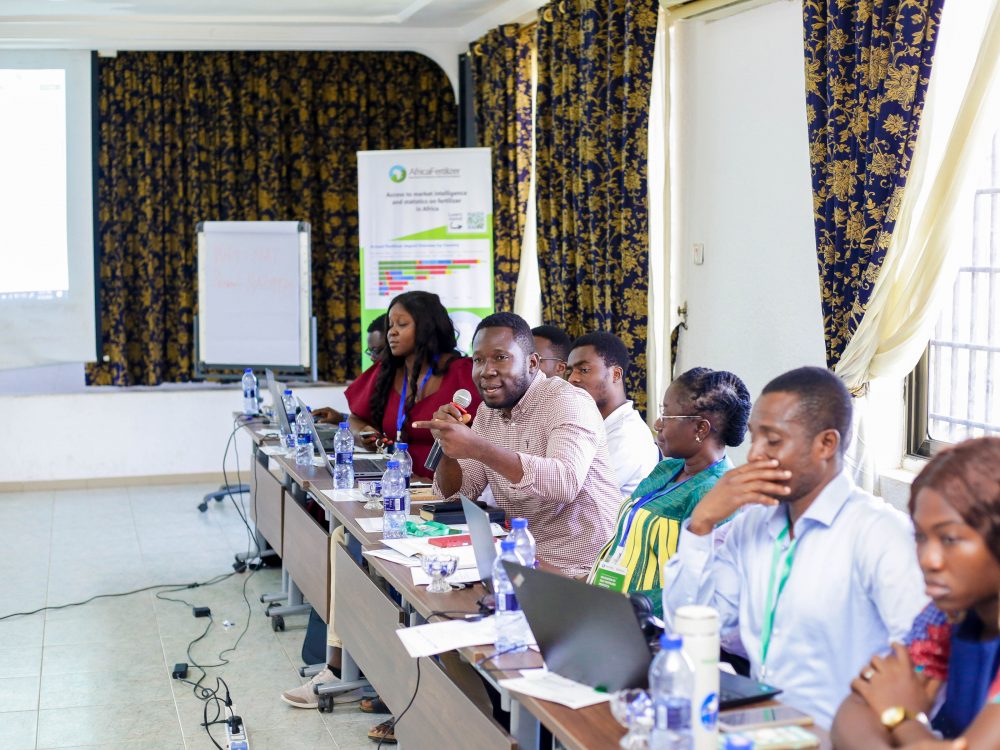
Case Study: Fostering Sustainable Agriculture through Data-Driven Collaboration and Partnership: Ethiopia, Mozambique, and Nigeria
Through DG’s Visualizing Insights on Fertilizer for African Agriculture (VIFAA) program, we recently published a case study titled “Fostering Sustainable Agriculture through Data-Driven Collaboration and Partnership: Ethiopia, Mozambique, and Nigeria.” It dives deep into how the VIFAA program has impacted the fertilizer data and markets in Ethiopia, Mozambique, and Nigeria. In this blog, we explore the overall impact that the VIFAA program is making, why the program was needed, and offer some key highlights from the case study.
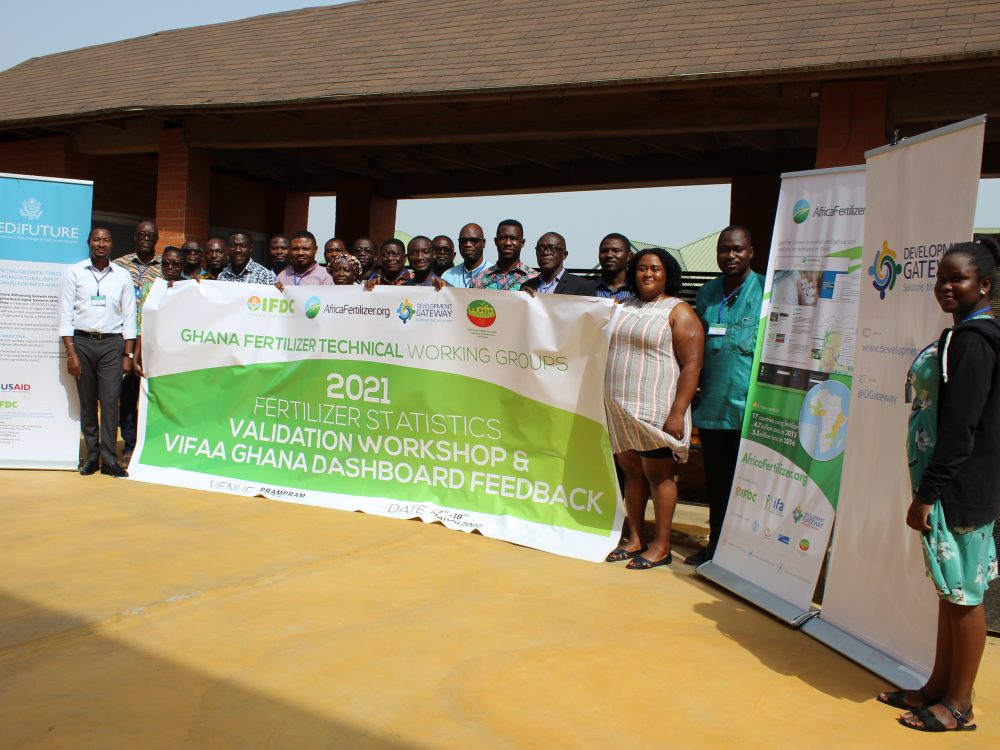
Fertilizer Technical Working Groups Provide Key Insights into Africa’s Fertilizer Sector
From June 2021 to September 2022, Development Gateway: An IREX Venture’s (DG’s) Visualizing Insights on Fertilizer for African Agriculture (VIFAA) program convened 12 Fertilizer Technical Working Groups in 14 countries which have yielded essential information on Africa’s fertilizer sector, including insights on how geopolitical events have impacted the fertilizer sector and what is needed to mitigate resulting threats to food security throughout Africa.

